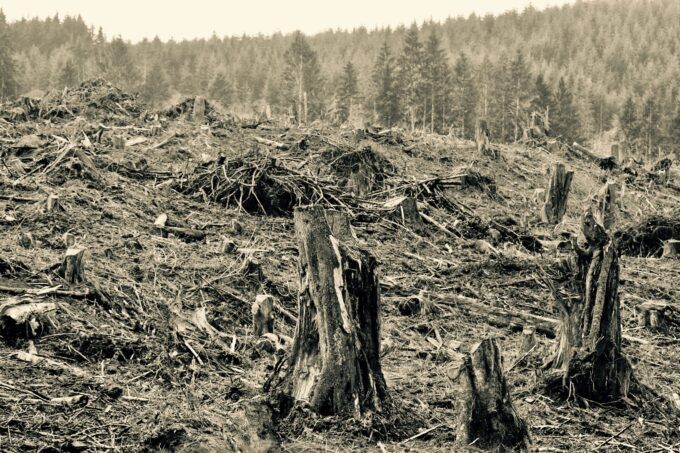
Clear in western Montana. Photo: Jeffrey St. Clair.
One of Montana’s most cherished wildlife management areas is on the chopping block. The Montana Department of Fish, Wildlife & Parks is now a full-on partner in the logging industry’s brutal war against Nature. FWP is proposing to liquidate (machine-log) approximately 1,500 acres of prime wildlife habitat on the Blackfoot-Clearwater Wildlife Management Area (BCWMA).
You heard that right, logging for wildlife. Logging to serve private capital is closer to the truth. Which sounds better, private capital or wildlife? Logging always sounds and looks better when shrouded in a disingenuous, prepackaged timber-industry narrative that creates confusion and indifference in the hunting community, and a real sense of pride and manliness in the governor’s office.
Don’t be fooled again, pillaging means certain death and forest destruction. When big machines begin to rip the forest to shreds, native wildlife and fish will try to escape. But where can they run that hasn’t already been financialized and converted into a plantation which only grows government-owned commodities?
The good news is that FWP is accepting public comments, no later than Jan. 19. That doesn’t give hunters and concerned citizens much time, but that is the life-and-death game government is playing in the Blackfoot-Clearwater region.
Concerned citizens can access the Draft Environmental Assessment (DEA) for the Doney Lake Forest Habitat Improvement Project here.
Fast-tracked logging with a 15-day public comment period prevents meaningful public participation, a right guaranteed by Montana’s Constitution.
Comments must be received by FWP no later than Jan. 19.
Points to consider in your comments:
1) Conduct an EIS with a full economic analysis which includes non-monetary values and benefit(s).
2) Has FWP consulted with U.S. Fish and Wildlife Service for a “take permit” for grizzly bear, lynx, bull trout, white bark pine and wolverine that “may be present” in the project area?
3) Is there any evidence that elk and other ungulates are lacking food, are in poor health, or in population decline in the project area?
4) Where is the money source to give public logs to private timber companies at a loss to Montana taxpayers? What federal funds are paying for this project?
5) Please present legitimate evidence to support the presumption that the forest is “unhealthy” and in need of “treatment.”
6) Please disclose how logging reduces hiding and thermal cover for elk and other big game, displacing them onto adjacent private lands. Is there a “hidden agenda” to promote “pay-to-play” game farming and higher fees/revenues?
7) Please disclose how logging disturbs soil which contributes to the spread of weeds and reduces biological and genetic diversity.
FWP lists numerous alleged benefits in the DEA’s purported ‘purpose/need.’ Let’s unpack a few right now.
“Improving big game forage” is a euphemism. FWP is trying to hide the cows. The public might find it offensive or unpleasant to know that logging to increase forage is almost always a sign that lots of cows are competing with big game populations for limited forage. Most canned agency narratives “promoting aspen growth and regeneration” also try to hide the cows. Cows and big game love munching aspen leaves and twigs.
“Encourage low‐severity wildfire” is propaganda which ignores drought conditions and high winds which drive big wildfires — “treatments” don’t work.
Logging is about money and control. Gaslighting hides the fact that this is robbery made to look like a gift from Santa.
Logging to improve forest health and wildlife habitat is meaningless fiction. Corrupt Montana politicians demand the steady flow of logs to subsidize mill owners and banker-parasites who milk taxpayers for profit. End this madness, comment today.